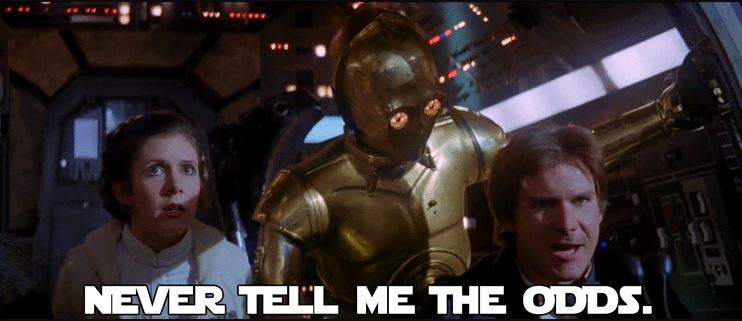Psychology Classics On Amazon

The Birthday Paradox
Here’s a quick exercise you can do with your friends and family.
Ask them to think about a group of people. This could be a social media group, the fans of a sports team they follow or a group of people at work or school.
Ask them how many people they think there would have to be in the group that they are thinking about, for it to be more likely than not (i.e., more than a fifty-fifty chance), that two members of the group share the same birthday.
Once you have their answer, tell them that typically, you only need a group of 23 people for there to be more than 50% chance that two of the group members share the same birthday.
You should find that most of the people you ask will find this hard to believe and will have suggested that you need a much higher number than 23 people in a group for this birthday match to occur.
This seemingly seemingly counter-intuitive finding is known as the birthday paradox or the birthday problem and it provides a great way to get people thinking about randomness, probability and chance.
If you and your family and friends would like to learn more the birthday paradox, listen to this excellent and humorous BBC podcast where they discuss the idea of randomness. Start at 15:31 to hear the hosts (and mathematician Alex Bellos) discuss the birthday paradox.
"Most coincidences, if you actually crunch the numbers, become a lot less amazing" (Alex Bellos)
Another quick and easy way to explore the birthday paradox is to access the birth dates of a group of around thirty people in order to see whether any of the dates of birth match. For example, I checked out the cast list of The Walking Dead and discovered that Tom Payne (Jesus) and Steven Yeun (Glenn) both celebrate their birthday on the 21st of December.
What are the odds? A lot more likely than we typically think. Just don't tell Han Solo!
 |
About The Author
David Webb is the owner, writer and host of four websites built around his teaching and research interests; including All-About-Psychology.Com which receives over two million visits a year.
A passionate promoter of psychology through social media, over 890,000 people follow his psychology Facebook page and he is featured on the British Psychological Society list of the 100 most followed psychologists and neuroscientists on Twitter.
A bestselling author, his published work includes: The Psychology Student Guide - The Incredibly Interesting Psychology Book and, On This Day in Psychology.
Recent Articles
-
Psychology Book Marketing
Apr 17, 25 04:56 AM
Psychology book marketing. Ignite your book's visibility by leveraging the massive reach of the All About Psychology website and social media channels. -
All About Psychology
Apr 15, 25 10:41 AM
A psychology website designed to help anybody looking for detailed information and resources. -
Billy Milligan Case Study: Psychology, Crime, and the Split Mind
Apr 15, 25 08:02 AM
Was Billy Milligan a fractured victim—or a manipulative genius? This Billy Milligan case study explores the psychology behind one of history’s most controversial trials.
Please help support this website by visiting the All About Psychology Amazon Store to check out an awesome collection of psychology books, gifts and T-shirts.





